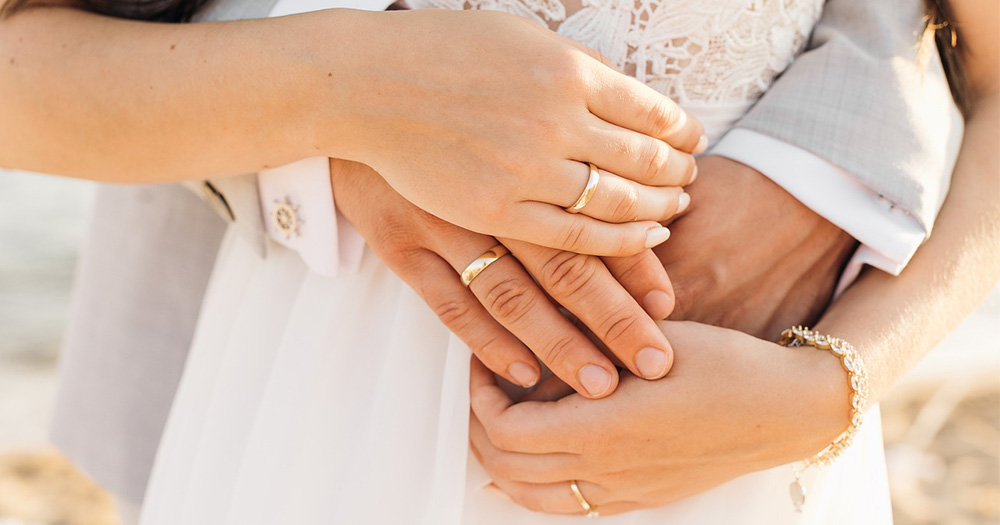Platonic marriages have happened between queer people for centuries, and willingly serving as someone’s beard has not been uncommon either. While these platonic unions had usually been secret, a new trend from Japan aptly called ‘friendship marriages’ openly emphasises the benefits of marrying a friend without a romantic or sexual connection.
Since its establishment in March 2015, approximately 500 members have entered into friendship marriages through the agency Colorus, which declares itself to be the first and only Japanese agency to offer such bonds, as a South China Morning Post (SCMP) article reported.
The agency collected data, which reveals that about 1% of the 124 million people that make up the Japanese population might be interested in this arrangement. The trend is increasingly popular among the younger generation in Japan, where some partners in friendship marriages have even raised children together. Artificial insemination can be used, according to the SCMP report, as sex and romance are absent in these bonds.
With their relationship being platonic, based on mutual interests and values instead of love, partners of this lesser-known kind of marital bond are allowed to pursue romantic interests outside the marriage if they both agree on it – usually an almost definite killer of traditional marriage.
Regarding the benefits, SCMP reported that the partners are legally spouses and can live together or apart. The marriage brings the partners tax benefits and can make it easier for single women to have children. Apparently, over 70% of Japan’s friendship marriages were formed to have children.
Prior to the marriage, couples have very long conversations laying out the details of their future life together, like splitting the household chores or the expenses, discussing sharing meals but also such details like refrigerator space.
The arrangements seem to work. The SCMP article quoted one person saying: “I’m not suited to be someone’s girlfriend, but I can be a good friend. I only wanted someone with similar tastes to do things we both enjoy, to chat and laugh with.”
Not only heterosexual people who are disenchanted with the traditional marriage concept but face pressure from societal or family expectations profit from this arrangement. To many in the LGBTQ+ community, this offers new possibilities.
Asexual and aromantic people can still have a companion by their side they can rely on, build a home, a life and maybe even a family with, without the pressures of feeling sexual or romantic attraction towards that person. The friendship marriage offers them the companionship they might look for.
What’s more, despite the second high court in Japan having found the country’s same-sex marriage ban unconstitutional this year, queer Japanese people still can’t avail of same-sex marriage or civil partnership. This was the latest of a series of court decisions upholding demands for marriage equality, with lawyers calling the judgment “historic”.
The ruling on the case called Japan’s ban on same-sex marriage “a groundless legal discrimination based on sexual orientation,” stating that it violates the constitutional right to equality, as well as individuals’ dignity and equality between the sexes. It also mentioned how legislation should be amended to grant same-sex couples equal rights to their heterosexual counterparts, including creating a new law to establish such a system.
This different arrangement of friendship marriages offers an alternative to those who wish to be in a marital bond with someone for its other benefits.
Especially for queer people, finding different forms of family and relationships is crucial. Be it the concept of a chosen family in addition or opposed to one’s biological family or breaking out of strict ideas of monogamy by being in polyamorous relationships.
For asexual people, just as in the “friendship marriages” in Japan, polyamory can be one way to establish deep romantic or platonic bonds with partners who may pursue sexual connections outside of that relationship. In fact, the term ‘queer platonic relationships’ originates from asexual and aromantic communities. Co-habitation or marriage is involved, but all polyamorous relationships are built on open communication, mutual understanding, and consent.
Professor Elizabeth Brake, a feminist philosopher, values platonic life partnerships because: “Not everyone thrives in sexual, romantic relationships. Some people are asexual or aromantic… some people are polyamorous… But being in a committed relationship… is good for our mental health.”
Japan’s friendship marriages therefore might not just be beneficial for legal and policy reasons or building a family. Finding companionship might help the partners’ mental health, likely especially for the LGBTQ+ people in those marital bonds.
© 2024 GCN (Gay Community News). All rights reserved.
Support GCN
GCN is a free, vital resource for Ireland’s LGBTQ+ community since 1988.
GCN is a trading name of National LGBT Federation CLG, a registered charity - Charity Number: 20034580.
GCN relies on the generous support of the community and allies to sustain the crucial work that we do. Producing GCN is costly, and, in an industry which has been hugely impacted by rising costs, we need your support to help sustain and grow this vital resource.
Supporting GCN for as little as €1.99 per month will help us continue our work as Ireland’s free, independent LGBTQ+ media.
